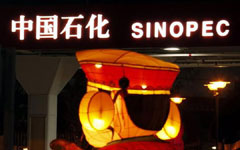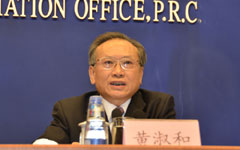Sinopec's policy opens doors to private investment
By Mike Bastin (China Daily) Updated: 2014-02-25 07:29It wasn't surprising that China Petroleum & Chemical Corp (Sinopec) has announced plans to open up its domestic marketing and distribution operations to private investors.
|
 |
|
 |
Despite China's miraculous economic emergence over the past 30 years or so, many important sectors are still dominated by about 100 centrally administered SOEs.
As a result, many complain about unnecessary bureaucracy and inefficiency and the need for market forces to play a greater role.
So the planned restructuring at Sinopec should also serve as a pilot program for SOE reform by giving market forces a greater role. That's good news for Chinese business generally.
The participants and terms of the partial privatization remain unclear, except that a limit of 30 percent will be put on total private shareholding.
This gradual approach is also welcome. Reform of the SOEs is essential if China's economic progress is to continue at a healthy pace. But evolutionary rather than revolutionary change is far more appropriate to mitigate fears of the unknown and cement lasting modernization.
It's Sinopec's retail sales business that could prove attractive to the private sector, because it's far less capital-intensive than oil exploration and refining.
Sinopec and China National Petroleum Corp, also State-owned, own just less than half of the gasoline stations in China. Smaller private investors may now be eyeing many of these as part of their business expansion plans.
- NHTSA says finds no 'defect trend' in Tesla Model S sedans
- WTO rare earth ruling is unfair
- Amway says 2014 China sales may grow 8%
- President Xi in Europe: Forging deals, boosting business
- CNOOC releases 2013 sustainability report
- Local production by Chery Jaguar Land Rover this year
- Car lovers test their need for speed in BMW Mission 3
- China stocks close mixed Monday

















